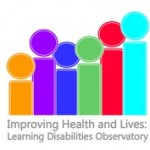
Adults with a more severe learning disability also have a greater likelihood of having autism according to a new report published by the NHS Information Centre. The report combines data from the Adult Psychiatric Morbidity Survey (APMS) 2007 with findings from a new study based on a sample of people with learning disabilities living in [read the full story…]








